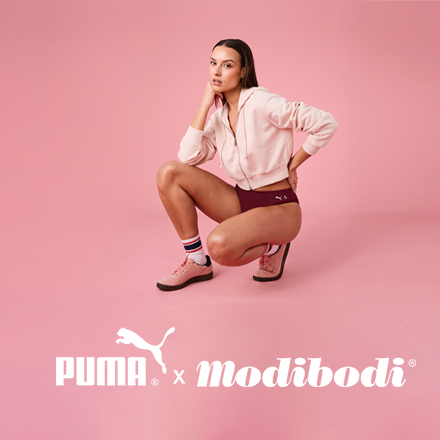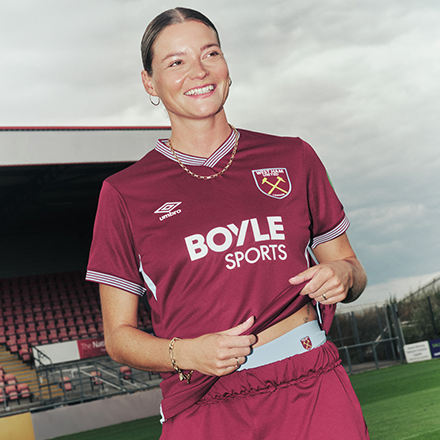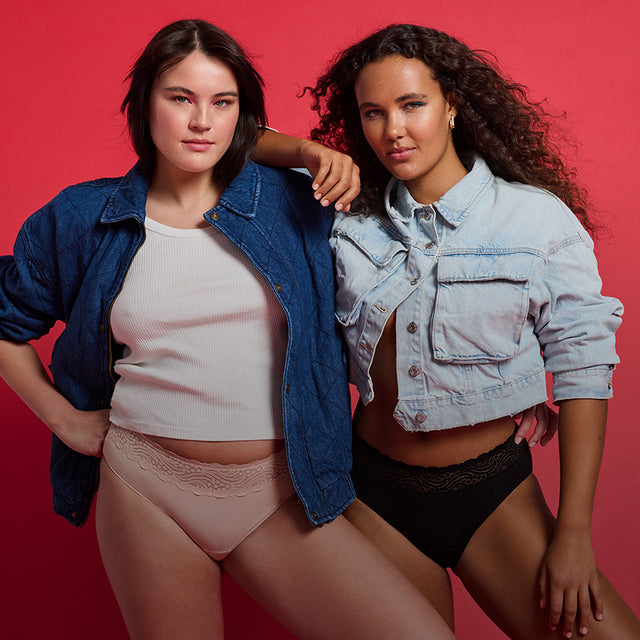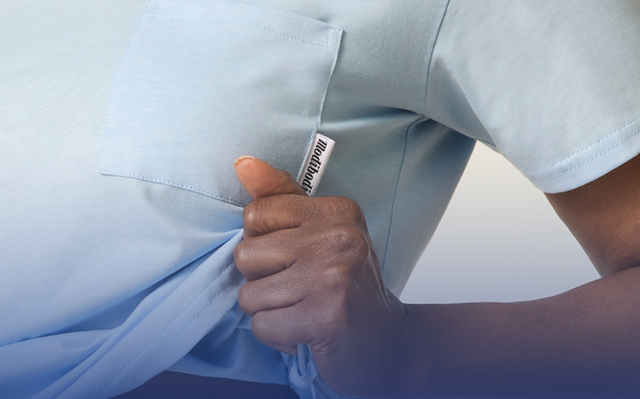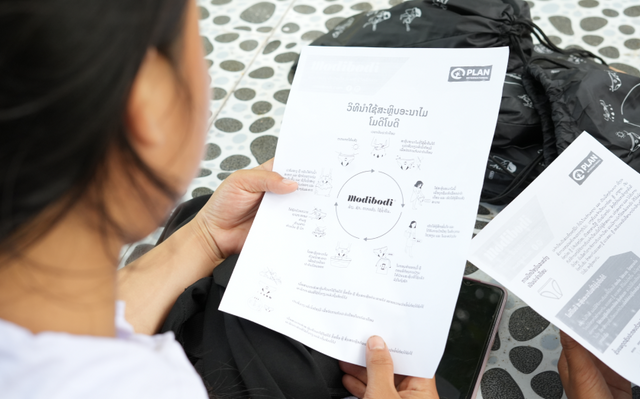When it comes to fighting for Period Equity, these women know a thing or two. This month, we took a deep dive into the work of five different women, on making the world a better place for people who bleed.
Danika Revell is the Co-Founder and CEO of the Period Place New Zealand
Where did your story begin? How did you start working in the menstrual equity space?
Four years ago, two best friends had an idea to do a Period Pop Up Shop that would include selling cool feminist merchandise, period products including the opportunity to learn about new reusable period product options and general information on menstrual cycles, and mixed into that most importantly highlight period poverty and it being a massive bloody issue in Aotearoa New Zealand.
What started out as a wild dream quickly became a reality for the best friends and new mums on "maternity leave" (who worked almost every day to build The Period Place - from a whisper of an idea into something tangible), to Aotearoa New Zealand's largest period advocacy and donation charity.
Why do you do what you do?
I am both obsessed and frustrated with menstrual equity. Obsessed, because it's such an important part of our daily lives, and it's barely a footnote in the lives of so many. Obsessed because, for girls, women and genders who menstruate, accessing the knowledge about their bodies has been denied by their whānau (family), communities and societies for so long. Which leads to the frustration - we are not only discouraged, but blatantly being kept from learning about ourselves, because of patriarchy.
Menstrual justice for me personally is this great mix of gender equality, justice, human rights, feminism, all in one. I get paid to be angry. I get paid to push the boundaries of society and change the world. As a strong intersectional feminist, what more could I ask for in a "career"?
What are you most proud of in the work you do?
It's the stories from people who reach out to us that keep me going the days I want to throw the pad in. The story from sisters who say we've made life a little easier in their family, because their single mum was struggling so much to pay for their period products, and keep a roof over their heads.
The story from a Mum with a daughter who has Autism that has high sensory needs who said they had to try 5,6, or 7 pads each time they need to change their child's pad because "it doesn't feel right", but now, with the incredible period underwear we sent them, their kid just changes her own underwear like it's no problem at all, and the week she is menstruating is no longer fraught with fear, and sadness.
There are hundreds of stories we've received, and I read them regularly to remind myself why I am bloody here. I am here for them. And I am not going anyway.
Where have you seen positive change during the time you have been working in the menstrual equity space and where do you still see room for improvement and growth?
When we started The Period Place four years ago, people were condescending as hell. I got pats on the shoulder often - "Oh thank you for bringing attention to such an important women's issue", but no one really wanted to have a bloody red blood dot logo next to their corporate one, did they?
Now that's changed. Menstrual equity is the new breastfeeding. Suddenly businesses want to provide products for their team members, governments want products in learning institutions so students can focus, and that's bloody brilliant.
But for all the attention, for all the conversation and all the press releases, it still doesn't change the fact that there are hundreds of thousands of people in Aotearoa New Zealand who still can't afford them.
We are providing less then 5% a month the amount of period products we want to be, and we donated over 650,000 last year. Adults who menstruate need more attention. A parent will forgo products for themselves to feed their kids, every time.
And that's not even touching on the stigma and taboo that exists in every workplace, school and our communities around menstrual cramps, and pain, which can prevent participation during their cycle. Even if we all had unending access to period products, a pair of underwear doesn't stop a cramp, does it!
What is the biggest challenge you face in the work you do?
Funding funding, funding. Funding to purchase enough period products for every person who needs them in this beautiful country.
Funding for enough staff, so we are not just a band aid service providing period products - we need to be able to provide all the period education a person needs so they can manage their body with the autonomy they deserve.
Funding to completely overhaul our society and end poverty forever – because poverty is the main driver of "period poverty" and the inability to access period products.
How do you see the conversation around menstruation changing – is it a corporate-led movement from women or a political agenda – helped in New Zealand by a female leader or something else?
There is no denying that having the leader of your country, regardless of their gender, say that ‘period poverty’ is a personal agenda item for them in Government makes a bloody big difference. The menstrual industry (for-profit and not-for-profit in Aotearoa New Zealand) has grown dramatically since our Prime Minister brought needed attention to how massive the issue is. While the country is now starting to understand how big an issue it is for kids, there is still not enough attention paid to it for everyone else who gets a period out of school. Many assume that since the Ministry of Education is handing out some free pads to kids, the problem is taken care of. There are 1.2 million people who get a period in Aotearoa, a few hundred thousand of those are at shool – so there is still a bloody lot to do. But yes, it is changing. Just not as fast as I would like.

